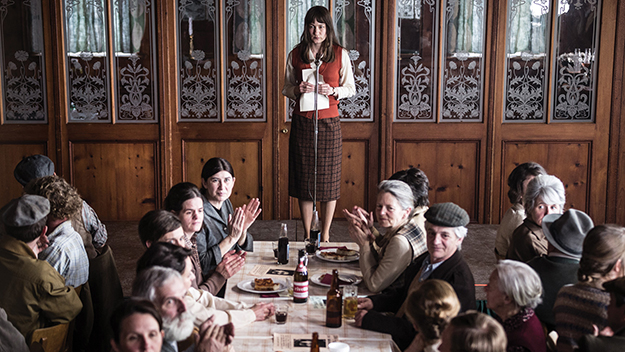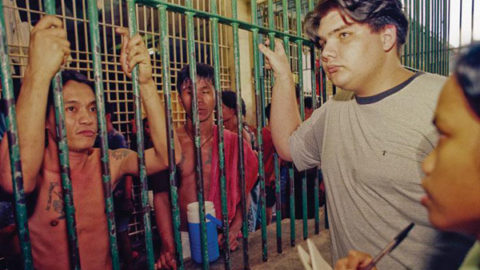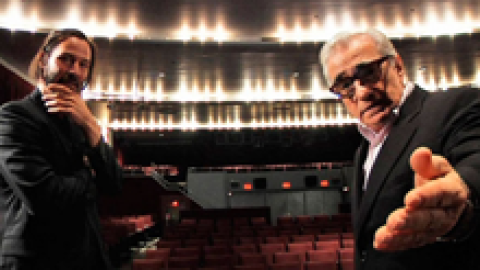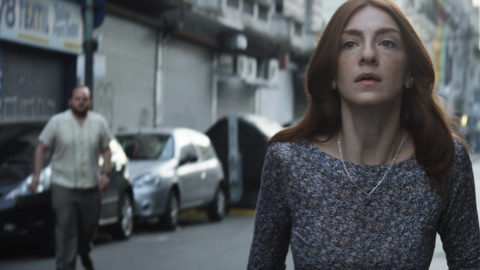Festivals: Tribeca 2017

The Divine Order
Sixteen years on, the Tribeca Film Festival has found a groove that is less about showcasing new films than attracting audiences to Virtual Reality and other new media presentations, discussions and dialogues, and star-studded revivals. Thus, the highlight of the festival was the screening of Francis Ford Coppola’s The Godfather (1972) and The Godfather Part II (1974) at Radio City Music Hall. One of the great American film sagas, it has never seemed more an indictment of institutionalized corruption as it does now that a cut-rate Corleone clone, his family, and thuggish underlings have taken over the White House. On the other hand, the special event that loudly proclaimed its relevance, a preview of the first episode of The Handmaid’s Tale directed by Reed Morano and starring Elisabeth Moss could not have been more ecstatically received, except by this writer who deems it misogynist, terror porn, Moss’s ability to convey subtext not withstanding. The entire series streamed on Hulu a few days later; I did not avail myself of the month-long trial subscription.
Call me old-fashioned, but I still go to film festivals to see movies. Out of roughly 100 features I saw only about 25, so it’s likely that I missed something wonderful. I did, in fact, see two films good enough to make me brave TFF again next year. Both are by women directors and both won awards. Quinn Shephard’s smart, provocative, marvelously acted first feature Blame took a prize for the performance of its lead actress, Nadia Alexander, and it’s to Shephard’s credit that she gave herself a less showy role in the film that she wrote, edited, and co-produced as well as directed. Blame is set in a suburban high school where a literature teacher decides to stage Arthur Miller’s The Crucible, and having a lech for the fragile teenager (Shephard) he casts as the vengeful Abigail Williams, he decides to play John Proctor, the minister with whom she’s sexually obsessed. This does not sit well with a more aggressive but equally messed-up student (Alexander) who believes the role is rightfully hers. Not only are the fragments of The Crucible glimpsed here more compelling than the far too many star-laden productions I’ve seen, but also the film’s central characters have rare psychological complexity. And thanks to Aaron Moorhead’s fleet cinematography and most of all Shephard’s editing and direction—of adolescents and adults—Blame moves along with remarkable intensity from beginning to end.
The Divine Order, the fourth feature by Swiss director Petra Volpe, won the audience award, the Nora Ephron Prize, and a best actress award in an international narrative for its star Marie Leuenberger, who is as deft with comedy as she is with impassioned drama. Leuenberger plays the pointedly named Nora, a wife and mother living in a small town near Zurich in 1970. Hard as it is to believe, at that time women in Switzerland did not have the right to vote, and in Nora’s conservative farming community, patriarchy was unquestioned. Nevertheless the occasional image or pop song came blowing in the wind from more liberated countries. Against her husband’s wishes, Nora goes to Zurich to apply for a job and finds herself in the middle of a demonstration for women’s suffrage, a voting issue in the 1971 election. Nora goes home with books and pamphlets and sets about organizing the women of her shockingly backward (this is Switzerland in 1970!) town. The Divine Order is inspired and inspiring—a reprise of feminist consciousness-raising groups from nearly 50 years ago, when mirrors were handed around so that women who had never looked at their vaginas could scrutinize their labia among friends, and also a model for the kind of political struggle that’s now needed more than ever.
Amy Taubin is a contributing editor to Film Comment and Artforum.







